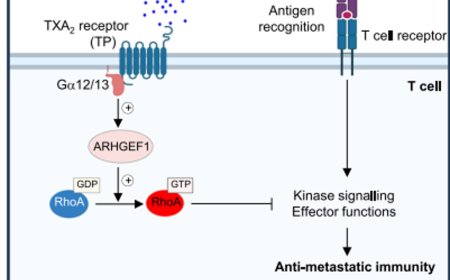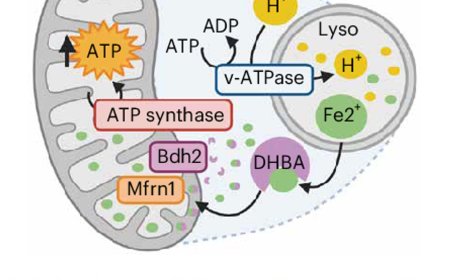Cancer-associated nerve injury leads to chronic inflammation and immunotherapy resistance

Cancer cells can break down the protective covers around nerves, causing nerve injury that triggers chronic inflammation leading to immune exhaustion and eventual resistance to immunotherapy, according to a new research.
The study, published in Nature, underscores the importance of investigating interactions between cancer and the nervous system – a field known as cancer neuroscience. The results suggest that targeting the signaling pathways involved can reverse this inflammation and improve treatment responses.
“These findings uncover novel mechanisms by which the immune system and nerves within the tumor microenvironment interact, revealing actionable targets that could transform the way we approach resistance to immunotherapy in patients with cancer,” said co-corresponding author. “This marks a significant advance in our understanding of tumor-neuro-immune dynamics, highlighting the importance of investigating the interplay of cancer and neuroscience in meaningful ways that can directly impact clinical practice.”
Tumors can sometimes infiltrate the space around nerves and nervous system fibers that are in close proximity, a process known as perineural invasion, which leads to poor prognosis and treatment escalation in various cancer types. However, little is known about how this invasion affects or interacts with the immune system.
The study examined the role of perineural invasion and cancer-associated nerve injury in relation to the development of immunotherapy resistance commonly seen in patients with squamous cell carcinoma, melanoma and stomach cancer.
Collaborating with the immunotherapy platform, the team analyzed trial samples using advanced genetic, bioinformatic and spatial techniques. The researchers revealed that cancer cells break down the protective myelin sheaths that cover nerve fibers, and that the injured nerves promote their own healing and regeneration through an inflammatory response.
Unfortunately, this inflammatory response gets caught in a chronic feedback loop as tumors continue to grow, repeatedly damaging nerves which then recruit and exhaust the immune system, ushering in an immunosuppressive tumor microenvironment that leads to treatment resistance. The study showed that targeting the cancer-induced nerve injury pathway at different points can reverse this resistance and improve treatment response.
Importantly, the authors point out that this reduced neuronal health is directly associated with perineural invasion and cancer-induced nerve injury, rather than a general cancer-induced effect, highlighting the importance of studying cancer-nerve interactions that can potentially contribute to cancer progression.













